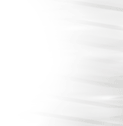|
|
Also called Cape Dutch.
-
A
West Germanic language of South
Africa, developed from 17th-century Netherlandic (Dutch) by the
descendants of European (Dutch,
German, and
French) colonists,
indigenous Khoisan peoples, and African and Asian slaves in the Dutch
colony at the Cape of Good Hope.
-
Afrikaans and
English
are the only Indo-European languages among the many official languages
of South Africa.
-
Although
Afrikaans is very similar to Netherlandic, it is clearly a separate
language, differing from Standard
Netherlandic in its sound system and
its loss of case and gender distinctions.
-
Afrikaans is very similar to
Flemish - certainly speakers of each language can make themselves
easily understood
by speakers of the other. Other less closely related languages include
the Low Saxon spoken in northern Germany and the Netherlands,
German, and
English. Cape Dutch vocabulary diverged from the
Dutch
vocabulary spoken in the Netherlands over time as Cape Dutch absorbed
words from other European settlers, East Indian slaves, and native
African languages.
-
The first Afrikaans grammars and dictionaries
were published in 1875 by the Genootskap vir Regte Afrikaanders (Society for Real Afrikaners)
in Cape Town. Official government proclamation of Afrikaans as a distinct
language from
Dutch
came in 1925.
-
Besides
vocabulary, the most striking difference from
Dutch
is its much more regular grammar, which is likely the result of mutual
interference with one of more creole languages based on the
Dutch language spoken by the relatively large number
of non-Dutch speakers (Khoisan, Khoikhoi,
German, French, Malay, and
speakers of different African languages) during the formation period of the
language in the second half of the 17th century. In 1710, slaves outnumbered
free settlers.
-
Most
linguistics scholars today are certain that Afrikaans has been influenced by
creole
languages based on the South-Holland
Dutch
dialect. It is very hard finding out how this influence took place, since
there are almost no written material written in the
Dutch based creole
languages; only a few sentences found in unrelated books often written by
non-speakers.
-
Written
Afrikaans differs from
Dutch in that the spelling
reflects a phonetically simplified language, and so many consonants are
dropped. The spelling is also a lot more phonetical that the
Dutch counterpart. A notable feature is the
indefinite article, which is "'n", not "een" as in
Dutch.
"A book" is "'n Boek", whereas in
Dutch it would be
"Een boek". Other features include the use of 's' instead of 'z', hence
South Africa in Afrikaans is written as Suid-Afrika, whereas in
Dutch it is Zuid-Afrika. (This accounts for ZA being
used as South Africa's internet top level domain.) The
Dutch letter combination 'ij' is written as 'y'.
The first
complete Afrikaans
translation of the Bible was published in 1933.
|
-
Beeld - An Afrikaans-language daily, printed six
days a week and distributed in Gauteng, Mpumalanga, North West,
Limpopo and KwaZulu-Natal. First published in 1974, the paper is
owned by Media24.
(SouthAfrica.info)
-
Die Burger
-
Afrikaans-language daily Die Burger, first published in 1915, is
distributed in the Western Cape. The paper is owned by Media24. (SouthAfrica.info)
-
Die Volksblad
- First
published in 1904, Volksblad is the oldest Afrikaans daily in the
country and the largest in the Free State and Northern Cape. It is
owned by Media24.
(SouthAfrica.info)
-
District Mail & Helder Post
- Afrikaans and English articles.
-
Finweek
-
Helderberg - Articles in English and Afrikaans.
-
Hoor hier! Kom ons skryf ín Afrikaans óór Afrikaans
-
Landbou
Weekblad
-
Rapport
- South Africa's national Afrikaans Sunday newspaper. It is
distributed countrywide and in Namibia. Owned by Media24, Rapport
has the biggest Afrikaans-language market penetration in South
Africa.
(SouthAfrica.info)
|


